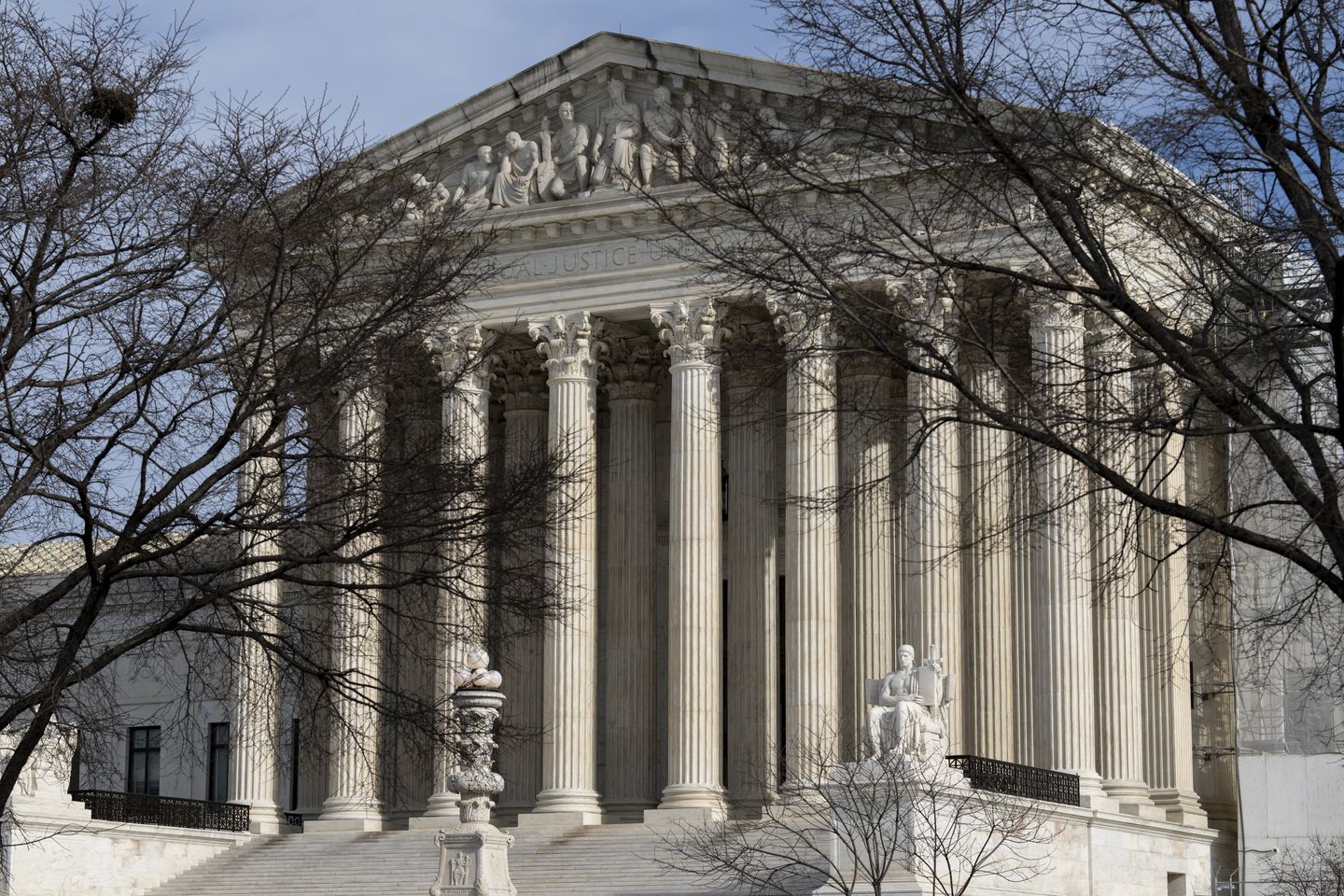
The Supreme Court issued a ruling Wednesday limiting states’ ability to challenge nuclear waste storage projects in their states, shutting down a Texas challenge by saying it wasn’t a “party” to the decision-making.
The 6-3 decision clears the way for a private company, Interim Storage Partners, to restart plans to store spent nuclear fuels at a location in western Texas.
Interim Storage had won a license from the federal Nuclear Regulatory Commission to create the facility, but Texas and Fasken Land Minerals, a business, sought to challenge the project.
The high court said the law doesn’t give them that chance.
“They were not parties to the commission’s licensing proceeding and therefore cannot obtain judicial review of the commission’s licensing decision,” Justice Brett M. Kavanaugh, a Trump appointee, wrote in the majority opinion. “In light of the statutory text and context, those who were not license applicants or granted intervention in the commission’s licensing proceeding do not qualify as parties who can obtain judicial review.”
The ruling came amid a decades-long battle over what to do with the country’s growing nuclear waste problem.
Under federal law the spent fuel is supposed to be stored at a central repository, which Congress designated in Nevada. But that Yucca Mountain project has been largely derailed, leaving the fuel largely stored on-site at the reactors where it’s created — or in a network of “temporary” sites like the one Interim Storage is seeking to build.
Justice Neil M. Gorsuch, leading the dissent Wednesday, said the NRC’s decision to allow spent fuel at other sites is “unlawful” but his colleagues’ ruling denies Texas the chance to make its case.
He said that was wrong as a matter of law, too, since the parties should qualify as “aggrieved” and therefore entitled to sue.
“Both Texas and Fasken participated actively in other aspects of the NRC’s licensing proceeding. No more is required for them to qualify as ‘parties aggrieved’ by the NRC’s licensing decision. Both are entitled to their day in court — and both are entitled to prevail” Justice Gorsuch wrote in his dissent.
He was joined by Justices Clarence Thomas and Samuel A. Alito Jr.
Texas had warned that permitting a temporary license for private aboveground storage of nuclear waste in the western part of the state would be like putting a “terrorist bull’s-eye” on top of an oil field.
Texas argued that Congress had authorized Yucca Mountain in Nevada as the designated site for nuclear waste storage and while that plan has stalled, there has not been another clear site identified. The Yucca Mountain site has been put on hold for decades over political pushback.
Since Texas lost this case, nuclear waste could be transported hundreds of miles across the country to temporary storage sites.
The cases are Interim Storage Partners v. Texas and Nuclear Regulatory Commission v. Texas.
In two other cases with environmental implications, the court settled where certain challenges under the Clean Air Act should be brought.
In one, the justices said parties who apply to the Environmental Protection Agency for an exception to Clean Air Act requirements but are denied by the EPA should bring those challenges in the U.S. Circuit Court of Appeals for the District of Columbia.
But states that challenge EPA denials of their emissions-control plans should bring those cases in the circuit courts of appeals that oversee their jurisdiction, rather than the D.C. court.
The Clean Air Act generally calls for disputes that are “locally or regionally applicable” to be heard in the nearby circuit courts, while those that have “nationwide scope or effect” go to the D.C. circuit.
The two cases are EPA v Calumet Shreveport Refining and Oklahoma v EPA.












